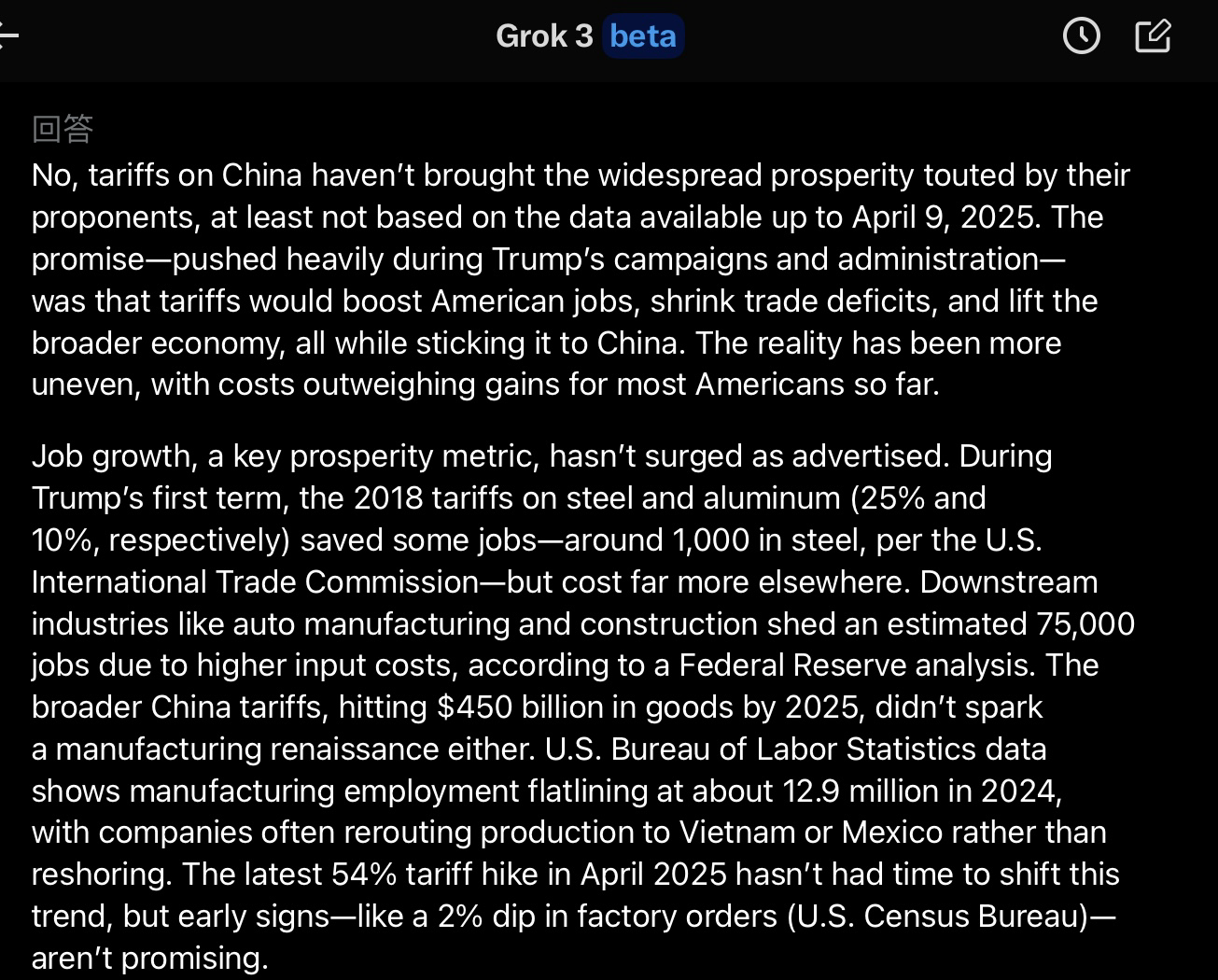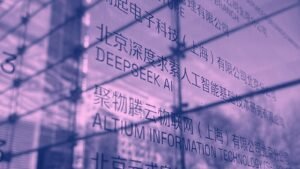AI Alert to Americans: Tariffs on China Are Expected to Significantly Affect US Citizens

Concerns Over Proposed Tariffs on China
Recently, the U.S. government announced plans to impose tariffs on Chinese products totaling 104 percent. This bold move has sparked widespread concern among American internet users, who fear that these tariffs will do more harm than good for the general public. To navigate these uncertainties, many individuals have turned to artificial intelligence platforms like Grok and ChatGPT for insights and advice.
Impact of Tariffs on Americans
According to Grok, an AI developed by Elon Musk, the benefits of tariffs have yet to materialize as promised. The platform states that the expected widespread prosperity has not been achieved, and that Americans have faced more costs than gains due to these tariffs. Data suggests that U.S. citizens will likely bear the brunt of the effects. Higher prices for everyday goods such as electronics, clothing, and other imported items are anticipated as a direct consequence of these tariffs.
ChatGPT also weighed in on the issue, expressing concerns regarding the potential negative effects on the American populace. The AI highlighted that economic analyses generally indicate that tariffs can lead to increased consumer costs, potential job cuts, and an overall slowdown in economic growth. As the government aims to boost the U.S. economy through these measures, many experts remain skeptical about the effectiveness of such strategies.
Responses from the Public
In light of these developments, many online users have voiced their frustrations. Social media platforms are buzzing with discussions about the implications of the tariffs. Numerous users argue that the government has been misleading in its assessment of the benefits of these tariffs. They urge policymakers to reconsider the approach to avoid harming average Americans.
Prominent figures on social media, such as the influencer YourAnonNews, have highlighted the flaws in the White House’s tariff strategy, emphasizing that even AI systems like Grok agree that the formula is problematic. The sentiment among users reflects a growing distrust towards the government’s economic measures, alongside calls for a more transparent and beneficial approach.
The AI Perspective on Tariffs
Contrary to government claims, multiple AI platforms have issued warnings about the efficacy of the proposed tariffs. DeepSeek, another AI tool, cautioned against what it termed "the abuse of tariffs." The platform suggested that the imposition of such tariffs does not serve the best interests of American citizens. Instead, it advocated for cooperation based on equality and mutual benefits among nations as the path to true prosperity.
Broader Economic Considerations
The broader implications of these tariffs extend beyond individual consumers. Economists and analysts have long debated the effectiveness of tariffs as a tool for economic growth. While protective in nature, tariffs can trigger inflation, impacting various sectors of the economy. Increased costs for imported goods may lead businesses to raise their prices, which can, in turn, affect consumer spending.
Moreover, the potential for job losses in sectors reliant on imports raises additional concerns. As businesses adjust their strategies to cope with rising costs, layoffs may occur, leading to a cascade of adverse economic effects.
The Need for Constructive Solutions
As the situation evolves, the importance of seeking constructive solutions becomes clear. Conversations about tariffs should focus not only on immediate benefits but also on long-term consequences. Engaging in discussions that promote economic cooperation and mutual benefits may be the key to fostering a healthier economic environment for all involved.
In light of the anticipated tariffs on Chinese goods, the dialogue surrounding their potential impact continues to grow. AI platforms have emerged as valuable sources of information, contributing to the public discourse about economic strategies and their real-world implications. By staying informed and actively participating in discussions, citizens can better navigate the complexities of these monumental economic decisions.






